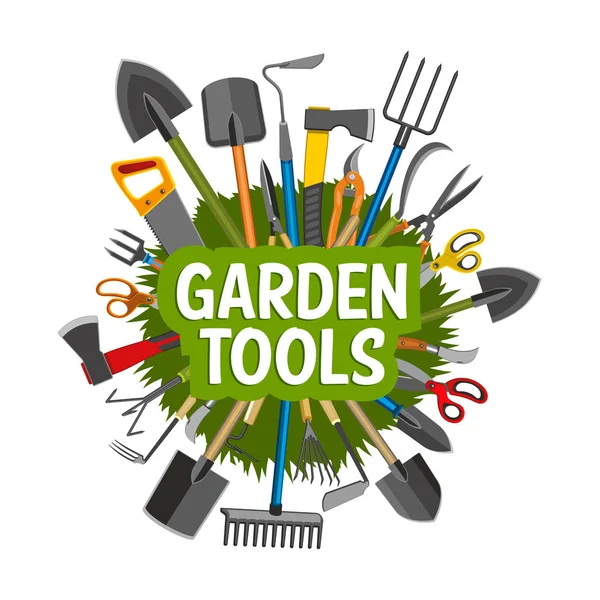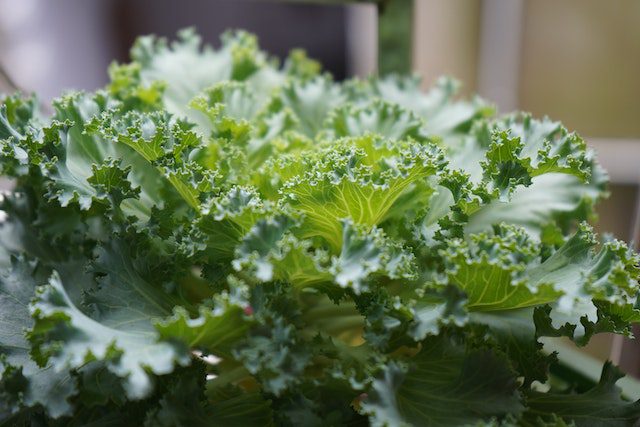To truly enjoy the art of gardening, it’s essential to be equipped with the right garden tools. Just as any craftsman needs their reliable instruments, gardeners need specific tools to make their experience easier, more efficient, and ultimately more rewarding. Whether you’re working on a small balcony, a sprawling backyard, or a couple of raised beds, the tools you choose can significantly impact your gardening success. From planting delicate seedlings to breaking up tough soil, each task requires precision, and the right tool ensures you achieve the best results with minimal effort.
For example, a hand trowel isn’t just for digging holes—it’s the go-to tool for transplanting, applying fertilizer, and even weeding small areas. Similarly, garden gloves aren’t just about comfort; they protect your hands from harsh soil, thorns, and potential injuries, allowing you to work longer without discomfort. Then there’s the wheelbarrow, an unsung hero of the garden. Without it, moving soil, compost, or even plants around the garden would be a back-breaking chore. Every tool on this list plays a vital role, whether you’re caring for tender plants or managing larger garden beds.
1. Hand Trowel
A hand trowel is perhaps the most versatile tool in a gardener’s kit. This small handheld tool is ideal for transplanting seedlings, digging small holes, mixing compost or fertilizer into the soil, and even weeding around tight spots. It’s the kind of tool that, once you start using, you’ll find yourself reaching for more than you imagined.
Recommended: Opt for a stainless steel hand trowel with an ergonomic handle for long-lasting comfort and durability.
2. Garden Gloves
Gardening can be tough on your hands. Whether you’re digging in the dirt, handling rough materials, or dealing with thorny plants, a sturdy pair of garden gloves will protect your hands from scrapes, blisters, and injuries. Good gloves should offer a snug fit without restricting movement, allowing you to work freely and comfortably.
Recommended: Durable, waterproof gloves with a snug fit ensure flexibility and keep your hands dry and protected.
Top 35 Profitable Agriculture Machines for Leasing in Africa
3. Pruning Shears (Secateurs)
A good pair of pruning shears is essential for trimming small branches, cutting back plants, and harvesting fruits and vegetables. Look for shears with sharp blades and a comfortable grip to avoid hand strain during prolonged use. Bypass pruning shears, in particular, are perfect for making clean, precise cuts without damaging the plant.
Recommended: Choose bypass pruning shears for the sharpest and most accurate cuts.
4. Garden Hoe
When it comes to breaking up soil, shaping planting rows, and dealing with pesky weeds, a garden hoe is a tool you’ll turn to regularly. For larger spaces, a traditional hoe works wonders, but for more precise weeding and soil cultivation, consider specialized variations designed for smaller beds or raised gardens.
Recommended: A lightweight hoe with a durable, long handle to reduce bending and ensure longevity.
5. Watering Can
If you’re tending to a small garden or container plants, a watering can is your best friend. It allows you to water your plants gently and precisely, especially when working with delicate seedlings. A good watering can should have a large capacity but remain easy to carry. A removable spout can also give you versatility for different watering needs.
Recommended: Metal watering cans are highly durable and resist cracking under the sun, ensuring long-lasting use.
6. Garden Fork
A garden fork, or spading fork, is vital for turning and aerating the soil, as well as breaking up compacted earth. It’s also helpful when mixing compost or organic matter into your beds. A high-quality garden fork with strong tines will easily penetrate hard soil without bending or breaking.
Recommended: A fork with forged steel tines will last longer and handle heavier tasks.
7. Garden Rake
A garden rake is perfect for leveling soil, spreading mulch, and clearing away garden debris. While there are various types of rakes, a standard garden rake with a steel head is a versatile tool that’s useful for many tasks, from smoothing out freshly dug soil to distributing compost.
Recommended: Choose a steel-headed rake for durability and wide coverage for efficient work.
8. Wheelbarrow
Whether you’re moving soil, mulch, compost, or tools, a wheelbarrow makes transporting materials around the garden much easier. A good wheelbarrow should be sturdy enough to handle heavy loads without buckling, and it should have a frame that resists rust for longevity.
Recommended: A rust-proof, heavy-duty wheelbarrow with pneumatic tires will stand up to tough garden jobs.
9. Garden Kneeler or Pad
For tasks that require kneeling, like planting or weeding, a garden kneeler or pad can make a big difference in comfort. It provides support for your knees, reducing strain, and preventing injury. Some kneelers even double as seats, giving you flexibility while working in your garden.
Recommended: Look for a cushioned, foldable kneeler that doubles as a seat for added versatility.
10. Soil Moisture Meter
Overwatering or underwatering can lead to plant failure, which is why monitoring your soil moisture levels is key. A soil moisture meter helps you determine whether your plants need water and ensures they’re getting just the right amount.
Recommended: Choose a digital soil moisture meter with a long probe to get deep readings and more accurate measurements.
11. Hand Cultivator
For loosening soil, weeding, or mixing in fertilizers in small areas like raised beds or containers, a hand cultivator is an essential tool. Its sharp prongs easily break up the soil, making it easier for plant roots to grow and absorb nutrients.
Recommended: A hand cultivator with sturdy metal prongs will stand up to tough tasks.
12. Garden Shovel (Spade)
When it comes to larger digging tasks, such as planting trees, moving soil, or creating garden beds, a garden shovel is your go-to tool. It’s important to choose a shovel with a sharp edge for efficient digging and a sturdy handle for control and durability.
Recommended: A steel spade with a rounded or square edge, depending on your needs, will make your digging jobs much easier.
13. Garden Twine & Stakes
When plants like tomatoes or beans need extra support, garden twine and stakes come in handy. They keep plants upright and organized, allowing for better growth and easier harvesting.
Recommended: Opt for eco-friendly jute twine and adjustable stakes that won’t damage your plants.
14. Hose with Adjustable Nozzle
A watering can works for small gardens, but a hose is essential for larger spaces. With an adjustable nozzle, you can easily switch between a fine mist for seedlings and a strong stream for heavier watering. Look for a hose that’s long enough for your garden and resistant to kinking.
Recommended: Choose a hose with a comfortable, ergonomic nozzle and durable, kink-resistant design.
15. Compost Bin
If you’re serious about sustainable gardening, composting is a must. A compost bin keeps your organic waste contained while speeding up the decomposition process. This way, you can create rich, nutrient-packed compost to nourish your plants.
Recommended: A rotating compost bin makes it easier to mix and aerate your compost for quicker results.
How to make money providing agriculture machines in Kenya
16. Garden Weeder
Weeds can quickly overtake your garden, but a garden weeder helps you remove them without disturbing nearby plants. With a long-handled weeder, you can pull out weeds by the roots while standing, reducing strain on your back and knees.
Recommended: A sharp, pointed weeder with a long handle will help you get into tight spaces and extract deep-rooted weeds.
17. Seedling Tray
Starting plants from seeds? A seedling tray gives you a controlled environment to nurture your seedlings before transplanting them into the garden. It also helps keep your seedlings organized, making it easier to manage their growth.
Recommended: Look for a seedling tray with drainage holes to prevent waterlogging and encourage healthy root development.
18. Mulch or Fertilizer Spreader
For larger gardens, spreading mulch or fertilizer by hand can be time-consuming and uneven. A spreader ensures a uniform distribution, helping your plants receive consistent nourishment or protection.
Recommended: A handheld spreader is perfect for small gardens, while a wheeled version is ideal for larger spaces.
19. Garden Edger
To maintain clean lines between your lawn and garden beds, a garden edger is essential. It gives your garden a neat, polished look and prevents grass from encroaching into your flower beds.
Recommended: A lightweight manual edger works well for small areas, while a powered edger is better suited for larger spaces.
20. Rain Gauge
A rain gauge helps you track how much water your garden is receiving from rainfall. By knowing how much water your garden has absorbed, you can avoid overwatering or underwatering, which is crucial for maintaining healthy plants.
Recommended: A simple, easy-to-read rain gauge can be mounted anywhere in your garden for quick reference.
In conclusion
By equipping yourself with these essential garden tools, you’ll be ready to tackle any gardening project with confidence and ease. Quality tools last for years, making them a valuable investment for both novice and experienced gardeners alike. With the right tools in hand, you can look forward to more productive, enjoyable gardening experiences season after season.



